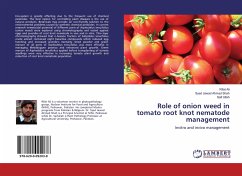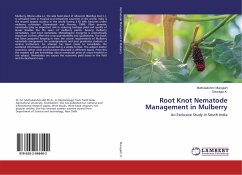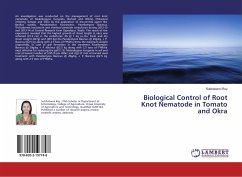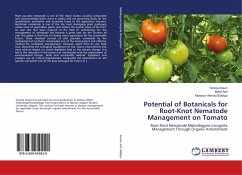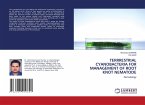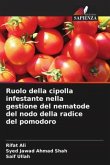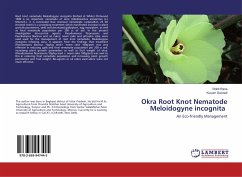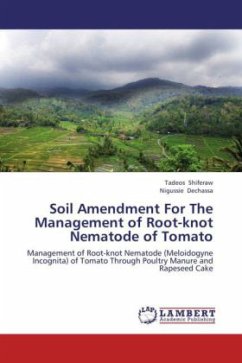Eco-system is greatly affecting due to the frequent use of chemical pesticides. The best option for controlling plant diseases is the use of natural products. Botanicals may provide an eco-friendly solution to the environmental problems caused by synthetic chemical pesticides. In current research nematicidal potential of different parts of Asphodelus tenuifolius (onion weed) were explored using chromatography and tested against eggs and juveniles of root knot nematode in vivo and in vitro. Thin layer chromatography showed that n-hexane fraction of Ashpdelus tenuifolius crude extract contained eight bioactive compounds which reduced egg hatching and increased juvenile's mortality. Dried powder and green manure of all parts of Asphodelus tenuifolius was more effective in managing Meloidogyne javanica and enhanced plant growth. Green manure of Asphodelus tenuifolius applied before transplanting of tomato seedlings were very effective in increasing tomato plant growth and reduction of root knot nematode population.
Bitte wählen Sie Ihr Anliegen aus.
Rechnungen
Retourenschein anfordern
Bestellstatus
Storno

